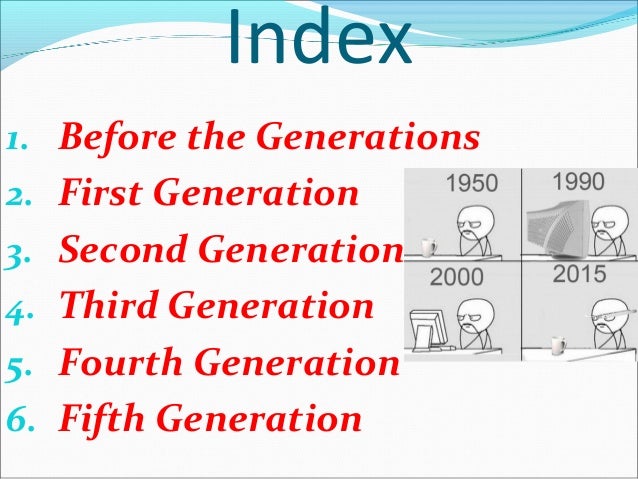The difference between the third generation computers and the fourth generation computers are as follows: Third Generation They used integrated circuit (I.C) and large scale integration (LSI). They were smaller in size and called as mini computer. The operating speed was measured in nano seconds. Generation in computer terminology is a change in technology a computer is/was being used. Initially, the generation term was used to distinguish between varying hardware technologies. Nowadays, generation includes both hardware and software, which together make up an entire computer system. The term 'fifth generation' was intended to convey.

- Computer Fundamentals
- Computer Useful Resources

Difference Between 4th And 5th Generation Computer Systems
- Selected Reading
Difference Between 4th And 5th Generation Computer Hardware
Generation in computer terminology is a change in technology a computer is/was being used. Initially, the generation term was used to distinguish between varying hardware technologies. Nowadays, generation includes both hardware and software, which together make up an entire computer system.
There are five computer generations known till date. Each generation has been discussed in detail along with their time period and characteristics. In the following table, approximate dates against each generation has been mentioned, which are normally accepted.
Difference Between 4th And 5th Generation Computer Language
Following are the main five generations of computers.
Difference Between 4th And 5th Generation Computers
| S.No | Generation & Description |
|---|---|
| 1 | First Generation The period of first generation: 1946-1959. Vacuum tube based. |
| 2 | Second Generation The period of second generation: 1959-1965. Transistor based. |
| 3 | Third Generation The period of third generation: 1965-1971. Integrated Circuit based. |
| 4 | Fourth Generation The period of fourth generation: 1971-1980. VLSI microprocessor based. |
| 5 | Fifth Generation The period of fifth generation: 1980-onwards. ULSI microprocessor based. |

